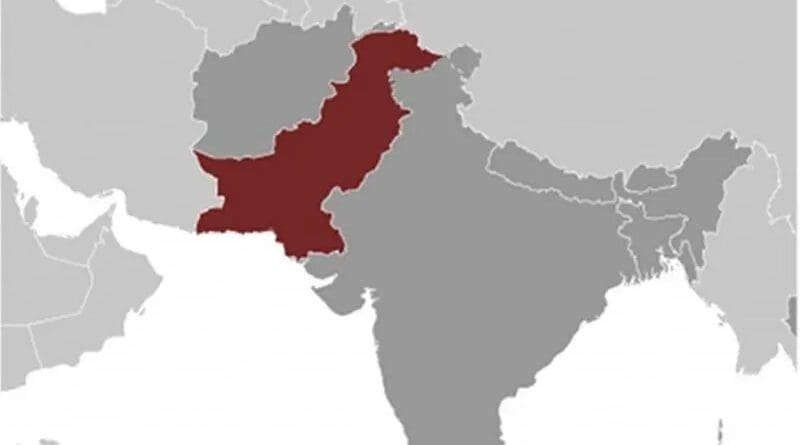US-Pakistan Strategic Dialogue: Series Of Expectations – OpEd
On February 29, U.S. Secretary of State John Kerry met Pakistani Advisor on Foreign Affairs Sartaj Aziz in Washington D.C, summoning the 6th “US-Pak Strategic Dialogue”. The two sides discussed the importance of mutual cooperation for regional stability, peace and the strengthening of the global security environment which included Military cooperation, Taliban peace talks, nuclear non-proliferation, and even Kashmir issue.
The importance of Strategic Dialogue lies in its focus on the six main working groups which consists of Energy, Security, Strategic Stability, and Nonproliferation, the Defense Consultative Group, Law Enforcement and Counterterrorism, Economics and Finance and, Education, Science, and Technology. Both parties acknowledged the sustainability of common interest through the US civil assistance in the goal of legislation known as the “Kerry-Lugar-Berman” act, which was enacted in 2009.
Strategic level of talks between US and Pakistan was first initiated back in 2010 between the (former) Secretary of State Hillary Rodham Clinton and Pakistan’s Foreign Minister Shah Mahmood Qureshi to hold US-Pak dialogues. The prime concerns were to exchange views between US and Pakistan to establish visionaryprocess for Pakistan but this process derailed and could not last long, a list of unexpected incidents like Raymond Davis, Salala and US Marines’ raid in Abbottabad on Bin laden compound. The entire process was delayed and for about three years no strategic level talks was held. In 2013 the talks were re-arranged again to settle the series of misperceptions and strengthen mutual cooperation between US and Pakistan.
Moreover, the question of nonproliferation was discussed in the ministerial level talks. The Secretary of State John Kerry asked “Pakistan to reduce its nuclear arsenal” but the allegations? were rejected by Sartaj Aziz while answering that “Pakistan would not accept any unilateral curb on its ‘dynamic’ nuclear program”.
Consequently, the US did not mention India’s nuclear program which is a source of instability in the region and forcing Pakistan to strengthen its deterrence policy against India. Pakistan’s concerns regarding nonproliferation is highly regarded while Pakistan respects and obey the 1540 United Nations Security council resolution against the proliferation of weapon of mass destruction WMD. Hence it is taken under consideration that US has to restrict India by reducing its nuclear stockpile, while on the other hand Indo-Us nuclear deal is one of the biggest factor that would destabilize regional stability and give India entry into Nuclear Supplier Group( NSG), which left Pakistan with only the option to stay on Full Spectrum Deterrence policy to generate the pressure on the Indian side. The US is expecting a lot from participation of Pakistan in Nuclear Security Summit 2016 and in principle, to ratify the 2005 Amendment to the Convention on the Physical Protection of Nuclear Material which Pakistan has desired to do so and Pakistan has fulfilled its nuclear safety and security measurements under international standards of IAEA.
Interestingly Kashmir was included in the strategic level talks for the first time in history between US and Pakistan dialogues. Both countries emphasized that Kashmir issue should be resolved by peaceful resolutions to stabilize Pakistan’s relationships with India, it has created alarming situation in Delhi especially after the Pathankot Air base incident which has dismantled Indo-Pak talks. It can be assumed as a shift in US policy towards Pakistan to include Kashmir in the main agenda and US is optimistic to give support and its assistance to resolve such an outstanding issue, the delegations concluded to work collectively and constructively to reduce maximum restraints between India and Pakistan.
During the dialogues the US said it has appreciated Pakistan’s role in combating terrorism and insurgency throughout the country and given special tribute for those who sacrificed their lives. The ongoing operation in Northern region of Pakistan Zarb e Azb was highly acknowledged by the US administration and requested Pakistan for US assistance, despite the US mantra of “do more” for Pakistan consequently US has realized the hard efforts taken by Pakistan for the war against terrorism. Primarily Pakistan is also keenly interested to attain peace in Afghanistan by calling for the quad lateral talks which includes US, China, Pakistan and Afghanistan to pave the way for a negotiated settlement between Taliban and Afghan government.
Besides the main agendas of the talk, the significant outcome of the US-Pakistan strategic dialogue is that both parties agree on to establish “US-Pak Knowledge Corridor” which will increase two percent GPD of educational sector in Pakistan by 2018. Both Parties has signrd joint MOUs of 2016 between Higher Commission of Pakistan and US Educational Foundation which will enable 128 additional PHDs scholarships for Pakistani students under Fulbright for five years. Both parties appreciated the launching of US-Pak Center for Advanced Studies which was created in June 2015 which will work on the areas of energy, water, and agriculture for academics, policymakers, industry and climate change. Pakistan also thanked US for making remarkable investment channels like US aid and Overseas Private Cooperation OPIC to accommodate foreign investment in Pakistan. US have shown its main concern for the energy sector in Pakistan by US-Pak Energy Cooperation it would add 1,750Mw in electricity and US will also export LNGs to Pakistan.
US –Pakistan strategic dialogue is an incredible platform to improve friendship between both countries, underscoring and highlighting the important issues for regional security environment and enhancement of development goals between both countries. In contrast, trust deficit has always been a hindrance between both parties and there have been many disappointments from the both sides in the previous talks but in the end US has had high hopes from Pakistani side especially in countering militancy and nuclear safety.
*Hassan Sohail currently works at Center for International Strategic Studies CISS as a researcher.

